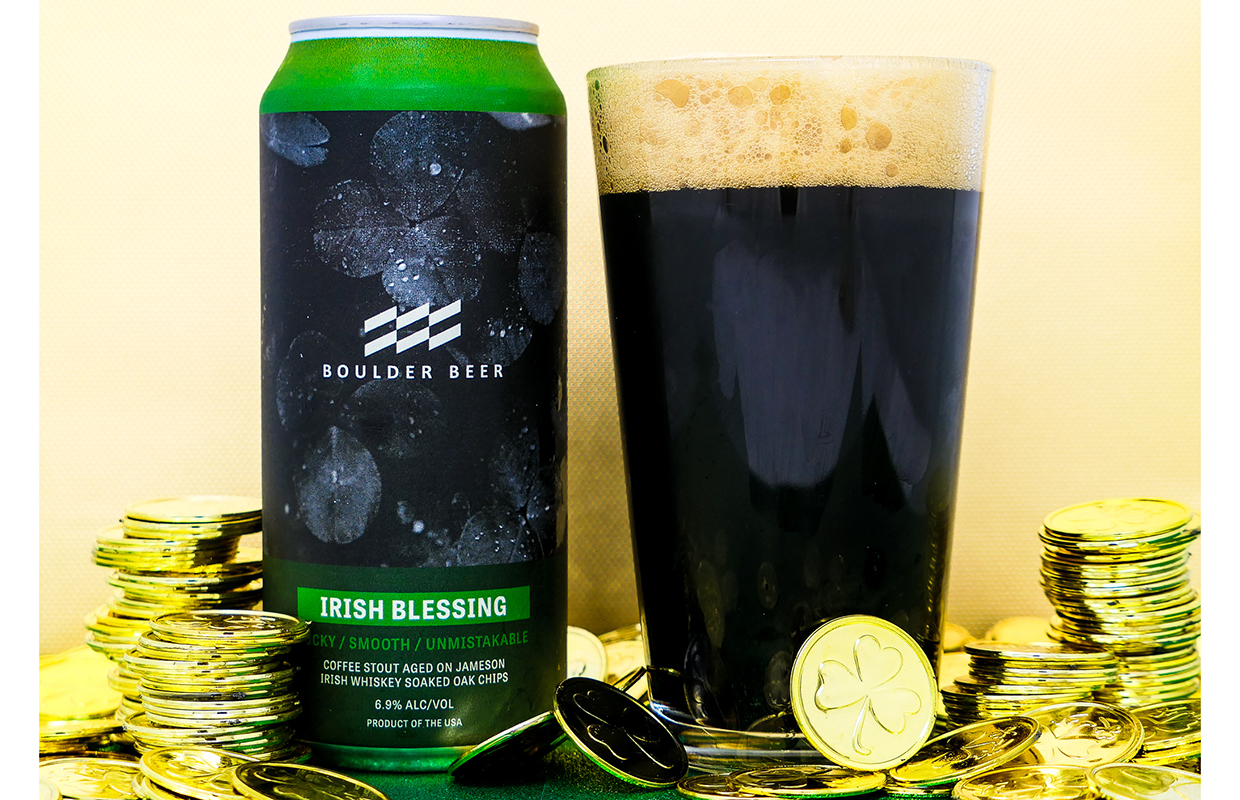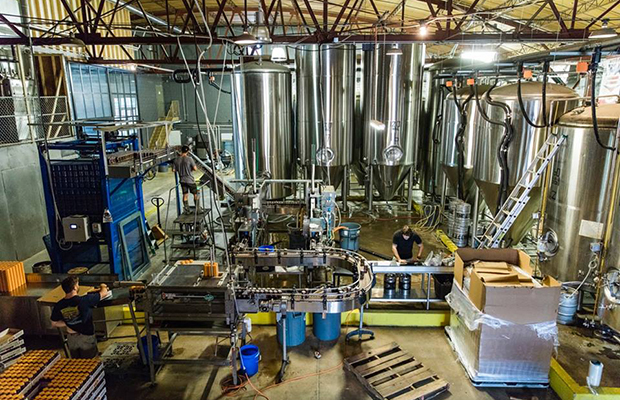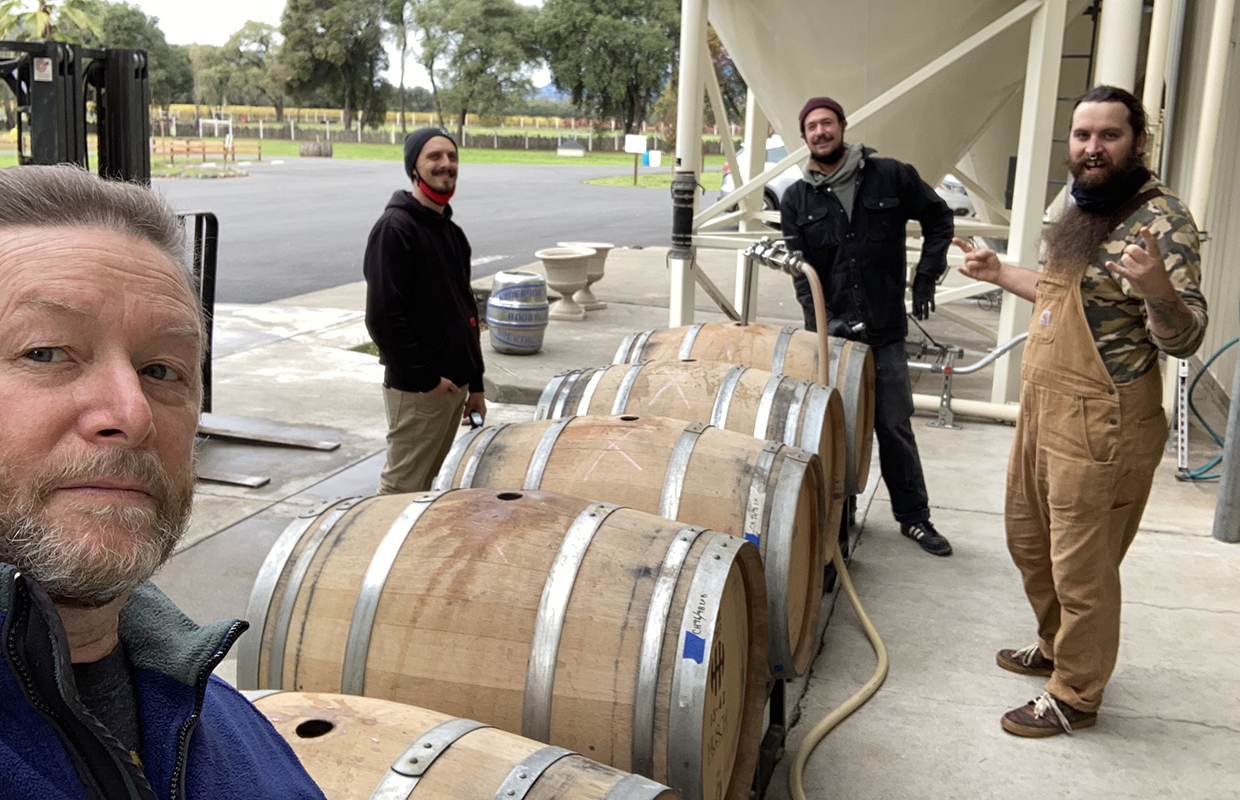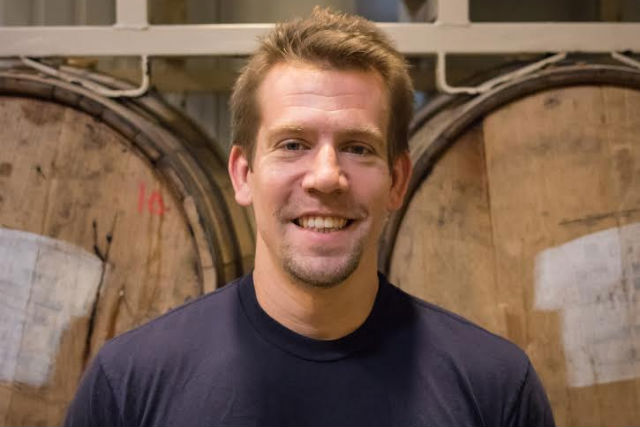
Imparting whiskey and coffee flavors, Boulder Beer released Irish Blessing in March to help celebrate the St. Patrick’s Day holiday. Getting behind the production of the beer, the company sought inspiration from a traditional Irish coffee but with a modern boozy twist.
That meant nailing two aspects, coffee, and barrel-aged flavors, but still, doing it in a quicker amount of time.
Barrel-aging can take time, so instead this brand was created by adding previously Jameson soaked and dried oak chips added for an aging period along with cold-extract coffee from Huckleberry Coffee.
“The use of chips allows greater surface area contact with the beer so we’ve found that it can impart greater oak and whiskey profiles in a shorter period of time,” explained Joe Schiraldi, VP of Operations for contract partner Sleeping Giant Brewing. “Additionally, the use of oak chips is incredibly beneficial in reducing storage space during the aging process.”
READ MORE: With Sleeping Giant, Boulder Beer’s Brand Lives On
Schiraldi said it’s incredibly important from a compliance standpoint that the oak chips are the same weight prior to being soaked in the Jameson Irish Whiskey as it is after it has soaked and been dried.
“We are legally prohibited from incorporating any residual distilled spirits into the beer, so we had to ensure that the oak chips were completely dried after soaking,” he noted in a release. “But it still accomplished the goal of infusing those bold, caramel, oak-forward, whiskey notes.”
Irish Blessing is brewed with black and chocolate malts for a bittersweet chocolate finish as well as flaked oats and lactose to lend a creamy mouthfeel. Originally debuting in 2017, Irish Blessing remains one of the brewery’s most requested brands to date according to the company, and after a short hiatus, made its return this March. For this release, Boulder Beer was able to reunite with Colorado’s Huckleberry Coffee to source the best roast for a cold brew coffee infusion.
Schiraldi said they didn’t do cupping in the traditional sense of the word. Instead, they received selected samples of various cold-brew extract coffees and selected the best one based on brand descriptions.
”We then go to flavor trials with actual beer at various charge rates of various coffees,” he explained. ”It gives a very real impression of what the final outcome will be.”
His philosophy for coffee additions is that the coffee should enhance and not take over what already exists in the beer formulation.
”Coffee is added at the last possible time to minimize processing and flavor loss through the various stages of beer processing prior to packaging,” Schiraldi said. ”Our preference has always been a cold extract delivered as close to use time as possible.”




Be the first to comment